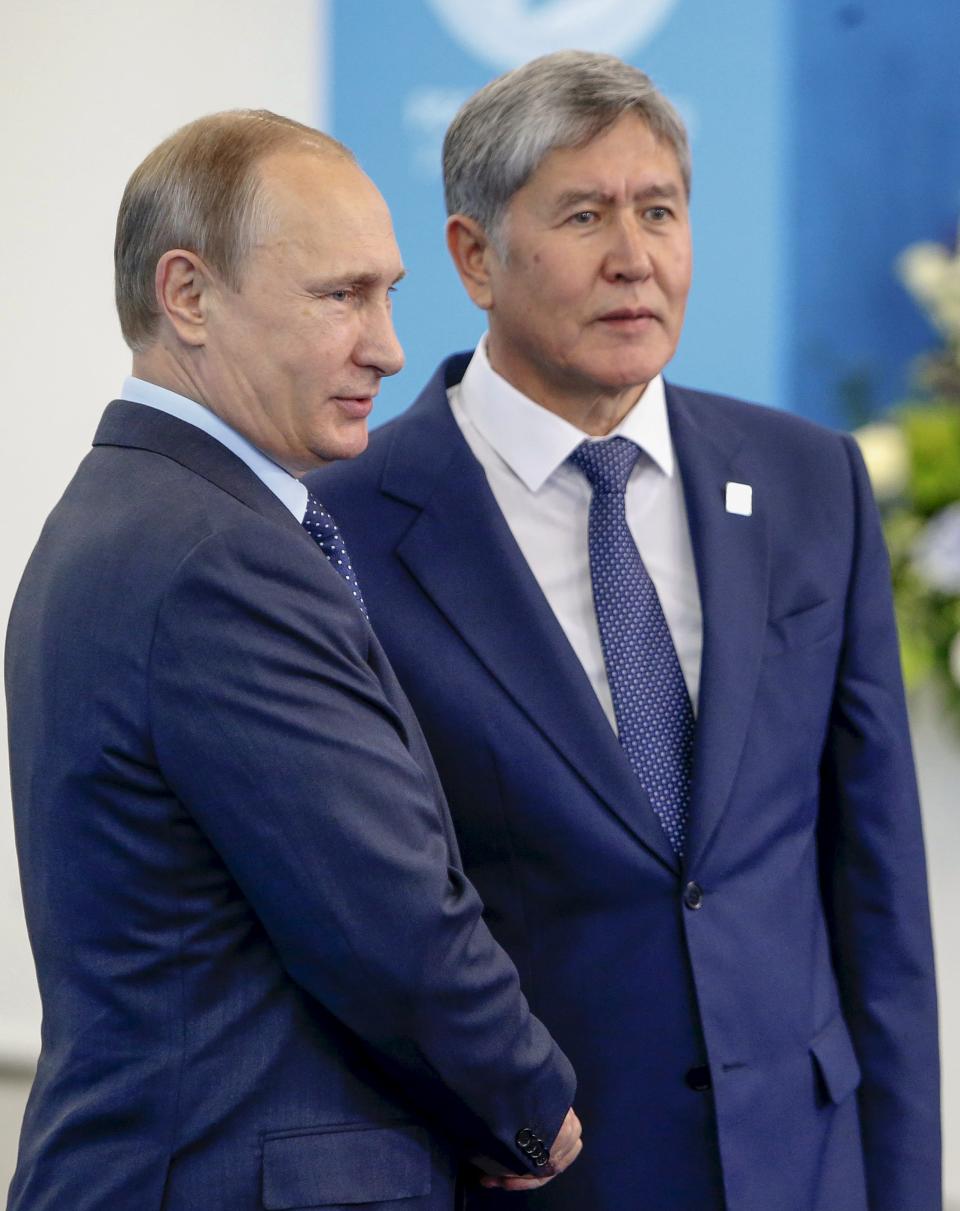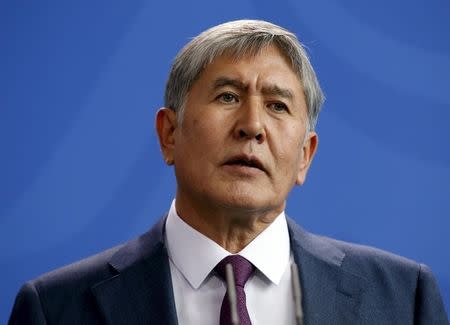Kyrgyz leader says U.S. 'sought chaos' by decorating dissident
By Olga Dzyubenko CHOLPON ATA, Kyrgyzstan (Reuters) - Kyrgyz President Almazbek Atambayev said on Monday the United States had sought to "create chaos" in his country by granting an award to a jailed dissident. The Central Asian country protested to Washington this month and tore up a cooperation agreement after the U.S. State Department conferred a human rights award on Azimjon Askarov, jailed for life for inciting ethnic hatred. "This (U.S. award) cannot fail to shock and, for Kyrgyzstan, this means ethnic instability and an attempt to create chaos," Atambayev told a news conference in a resort area outside the capital Bishkek. "It's just revolting. Someone needs instability in Kyrgyzstan. Someone wants these ashes to smolder all the time." The mainly Muslim nation of 5.5 million, which borders China and lies on a drug trafficking route out of Afghanistan, saw two presidents deposed by popular revolts in 2005 and 2010. Political tensions are rising as Kyrgyzstan, struggling to build the first parliamentary democracy in an authoritarian region, prepares to elect a new legislature on Oct. 4. Askarov, an ethnic Uzbek, was convicted of helping to incite ethnic clashes between Kyrgyz and Uzbeks in June 2010, when more than 400 people were killed, and of involvement in the killing of a policeman. Human rights bodies say his conviction was unlawful and that he has been tortured in prison. Ethnic Uzbeks are in a minority in Kyrgyzstan, but are heavily represented in the cities of Osh and Jalal Abad in the south, which saw the bloodshed in 2010. Many say they are excluded from prosperity by a political and security establishment dominated by ethnic Kyrgyz. Atambayev said Washington had formed a preconception that "there will never be justice in Kyrgyzstan" for the Uzbek community. "Again they are stirring up these separatist sentiments, which have already led to three bloody clashes." Washington for its part called Askarov "a uniting figure in the human rights community, bringing together people of all ethnicities and backgrounds". Kyrgyzstan is the biggest recipient in Central Asia of U.S. aid, which totals around $2 billion since independence from the Soviet Union in 1991, but Washington has said the cancellation of the 1993 Bilateral Agreement may hamper further assistance. Meanwhile, Kyrgyzstan is drawing closer to Russia, which maintains a military air base there and hosts thousands of Kyrgyz migrant workers. In another gesture of defiance to the West, Atambayev defended two bills going through parliament which critics say are designed to imitate laws passed in Russia. One would force charities funded from abroad to register as "foreign agents" if they encroach into politics; the other seeks to outlaw "gay propaganda". "Those receiving grants from certain countries seek chaos and confusion in our country, but we want stability," Atambayev said. (Writing by Dmitry Solovyov; Editing by Kevin Liffey)




